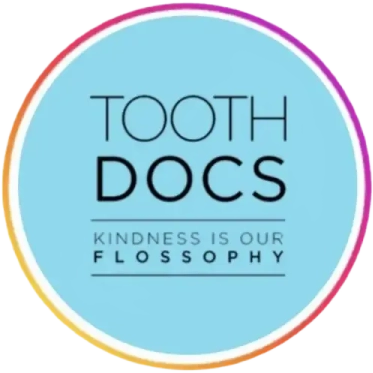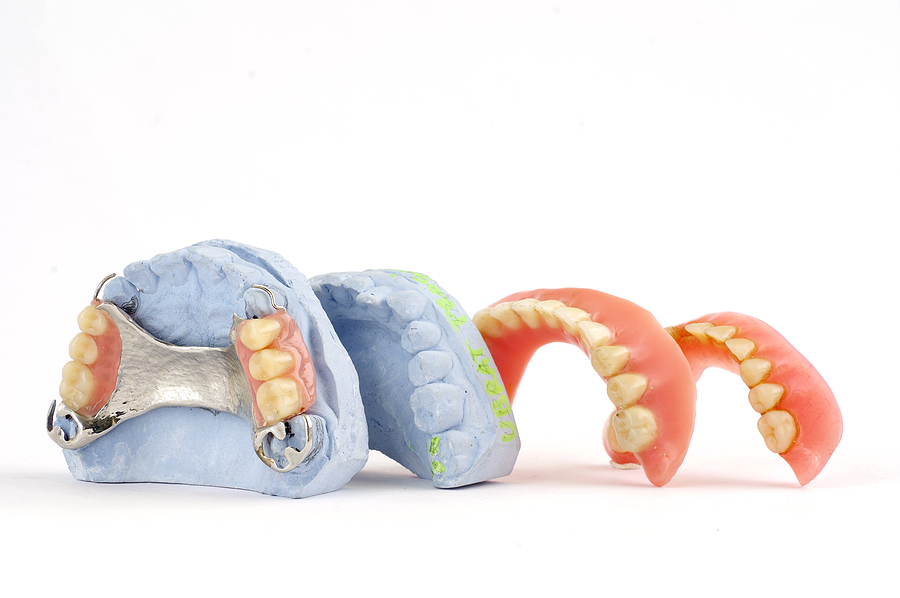![This is a thumbnail image of blog Dental Implants Are the Best Solution for Missing Teeth This is a thumbnail image of blog Dental Implants Are the Best Solution for Missing Teeth]()
Dental Implants Are the Best Solution for Missing Teeth
Nov 22, 2023![Dental Checkup in Roslyn and New York, NY Dental Checkup in Roslyn and New York, NY]()
Importance of Regular Dental Checkups: Your Path to a Healthy Smile
Apr 28, 2024![This is a thumbnail image of blog Comprehensive Guide to Dentures and Partial Dentures in New York, NY This is a thumbnail image of blog Comprehensive Guide to Dentures and Partial Dentures in New York, NY]()
Comprehensive Guide to Dentures and Partial Dentures in New York, NY
Jul 05, 2024![This is a thumbnail image of blog Caring for Your Child's Teeth: Tips for Parents on Establishing Good Oral Hygiene Habits Early This is a thumbnail image of blog Caring for Your Child's Teeth: Tips for Parents on Establishing Good Oral Hygiene Habits Early]()
Caring for Your Child's Teeth: Tips for Parents on Establishing Good Oral Hygiene Habits Early
Dec 27, 2024![Dental Implants in New York, NY Dental Implants in New York, NY]()
The Impact of Dental Implants on Jawbone Health & Facial Structure
Mar 12, 2025

Warning Signs of Gum Disease: When to See a Periodontist
Gum disease is more common than you might think. In fact, it affects millions of Americans every year. Yet, many people remain unaware of its early signs and the importance of seeking timely treatment. Ignoring these warning signs can lead to severe consequences for your oral health—and even your overall well-being.
Understanding what gum disease entails and recognizing its symptoms can be game-changers in preserving your smile. Whether you're a New Yorker concerned about your oral hygiene or simply curious about dental health, knowing when to seek professional help is crucial. Let’s delve into the world of gum disease and uncover how you can protect yourself from its harmful effects!
Understanding Gum Disease and its Causes
Gum disease, also known as periodontal disease, begins with inflammation of the gums. This condition is often caused by plaque buildup on your teeth. Plaque is a sticky film of bacteria that forms when food particles mix with saliva.
If left untreated, this inflammation can progress to more severe stages. Gingivitis is the earliest form of gum disease and typically leads to redness, swelling, and bleeding during brushing or flossing.
Several factors contribute to its development. Poor oral hygiene practices are at the top of the list, but other elements such as smoking, hormonal changes, diabetes, and certain medications can also increase risk.
Genetics play a role, too; some people may be predisposed to gum issues regardless of their oral care routine. Understanding these causes helps in taking proactive steps toward better dental health.
Early Warning Signs of Gum Disease
Gum disease often starts subtly. It’s easy to overlook the first signs, but being aware can make all the difference.
- One of the earliest indicators is swollen or red gums. If your gums bleed when brushing or flossing, that’s a signal not to ignore.
- Persistent bad breath could also be a warning sign. If mouthwash isn’t helping, it might be time for a check-up.
- Another symptom is receding gums, where they pull away from teeth. This can create pockets that trap bacteria and worsen the condition.
- Sensitivity in your teeth may arise as well. This discomfort while eating hot or cold foods shouldn't be dismissed lightly.
Pay attention to these signs—they are clues urging you to seek professional advice about gum disease treatment in New York before things escalate further.
Risk Factors for Developing Gum Disease
Gum disease can affect anyone, but certain factors increase the risk.
- Poor oral hygiene remains a leading contributor. Neglecting daily brushing and flossing allows plaque buildup, setting the stage for gingivitis.
- Age plays a significant role as well. The likelihood of gum disease increases with age due to cumulative exposure to bacteria over time.
- Genetics cannot be overlooked either. Some individuals may be predisposed to gum problems based on family history.
- Lifestyle choices matter too. Smoking and tobacco use significantly heighten risks by compromising blood flow to gums and impairing healing processes.
- Chronic health conditions such as diabetes or autoimmune diseases also contribute. They can weaken the body’s defenses, making it harder for gums to fight off infections.
- Hormonal changes during pregnancy or menopause can make gums more sensitive and vulnerable to inflammation. Being aware of these risk factors is crucial in maintaining good dental health.
Importance of Regular Dental Check-ups and Cleanings in New York
Regular dental check-ups and cleanings are crucial for maintaining gum health. In New York, where bustling lifestyles can make oral care easy to neglect, these appointments play a vital role.
During routine visits, dentists identify early signs of gum disease that you might overlook at home. Professional cleanings remove plaque and tartar buildup that brushing alone can miss. This proactive approach significantly reduces the risk of serious dental issues down the line.
Additionally, dental professionals provide personalized advice tailored to your specific needs. They can recommend products or techniques that enhance your daily oral hygiene routine.
Living in an urban environment often means higher stress levels and dietary challenges. Regular visits help mitigate those factors by keeping your gums healthy amid life's demands. Prioritizing these appointments ensures you’re not just treating problems but preventing them from occurring in the first place. Contact us to learn more.
When to See a Periodontist for Gum Disease Treatment in New York
Recognizing when to consult a periodontist is crucial for effective gum disease treatment in New York. If you notice persistent bad breath or a metallic taste, it may be time to seek specialized care.
Swollen or bleeding gums are also significant indicators that shouldn't be ignored. These symptoms often signal underlying issues that require professional assessment.
If you experience tooth sensitivity, particularly while eating hot or cold foods, this could indicate advancing gum problems. Additionally, if your teeth appear longer than usual due to receding gums, don’t hesitate to reach out for help.
A periodontist can provide tailored treatments designed specifically for your needs. Early intervention is key; the sooner you address these warning signs, the better your chances of preserving your oral health and smile long-term.
Common Treatments for Gum Disease
- Treating gum disease involves various methods tailored to the severity of the condition. For mild cases, professional dental cleanings can effectively remove plaque and tartar buildup. This helps restore gum health.
- For moderate to severe gum disease, scaling and root planing is common. This deep-cleaning procedure removes bacteria from below the gum line, smoothing tooth roots to promote healing.
- If these treatments aren’t enough, surgical options may be necessary. Flap surgery allows dentists to access deeper pockets in gums for better cleaning. Bone grafts can also support areas where bone loss has occurred.
- Antibiotics might accompany these treatments to fight infection and reduce inflammation. Dentists could prescribe topical gels or mouth rinses as part of your treatment regimen.
Choosing the right strategy depends on your specific needs. Consulting with a periodontist ensures you receive personalized care for effective results.
How to Prevent Gum Disease from Progressing or Recurring
Preventing gum disease from progressing or coming back requires a consistent approach to oral hygiene. Daily brushing and flossing are your first lines of defense. Make sure to brush twice a day with fluoride toothpaste and floss at least once.
Regular dental visits play an essential role too. Routine check-ups allow your dentist to catch potential issues early, making treatment easier.
A healthy diet can also support your gums. Incorporate plenty of fruits, vegetables, and whole grains while limiting sugary snacks. Staying hydrated helps maintain saliva flow, which protects against bacteria buildup.
Consider using antimicrobial mouthwash for extra protection against plaque formation. Quitting smoking is another critical step; it significantly lowers the risk of gum disease.
Be alert for any changes in your oral health—soreness or bleeding may indicate trouble ahead. Address these symptoms promptly with your dentist's help.
Conclusion
Gum disease can be a silent foe, often creeping up without noticeable symptoms. Being aware of its early signs is crucial for maintaining oral health. Regular check-ups and cleanings are essential in New York to catch any issues before they escalate. If you notice bleeding gums, persistent bad breath, or gum recession, don’t wait too long to consult with a periodontist.
Treatment options vary depending on the severity of the condition but include deep cleaning procedures and possibly surgery for advanced stages. Staying proactive about your dental hygiene can prevent gum disease from becoming a recurring issue.
Understanding what causes gum disease and recognizing risk factors like smoking or diabetes will empower you to take action early on. Keep your smile healthy by making appointments with your dentist and practicing good oral hygiene at home. Your gums deserve attention just as much as your teeth do!
To learn more about our dental services, visit us at 630 5th Avenue Suite 1815, New York, New York 10111 or call our office at (212) 969-9490.
Locations
630 5th Avenue Suite 1815, New York, New York 10111
Phone: (212) 969-9490
Email: info.nyc@toothdocsdental.com
- MON - FRI9:00 am - 5:00 pm
- SAT9:00 am - 4:00 pm
- SUNClosed
1044 Northern Blvd., Suite 106, Roslyn, New York 11576
Phone: (516) 625-0088
Email: info.roslyn@toothdocsdental.com
- MON9:00 am - 6:00 pm
- TUE9:00 am - 5:00 pm
- WED9:00 am - 6:00 pm
- THU - FRI9:00 am - 5:00 pm
- SAT - SUNClosed














comments